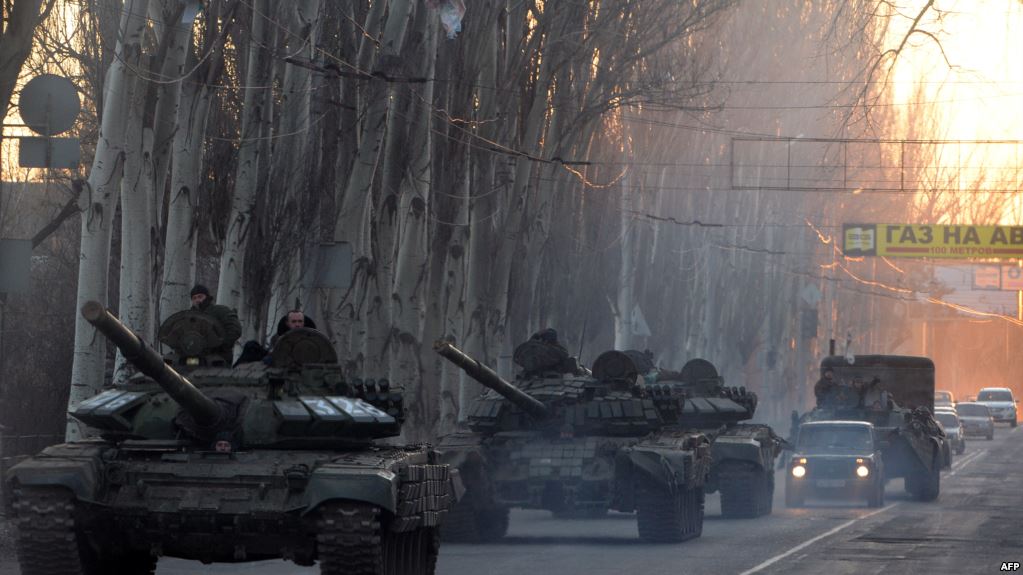
By Polygraph
“… Maidan authorities, who under the guise of fighting the ‘aggressor’ violate fundamental rights of their own citizens and try to ruin traditional multi-faceted ties between the peoples of Russia and Ukraine, will obviously leave not a good memory, and the court of history will inevitably pass a harsh sentence for them.”
FALSE
Moscow is the aggressor in the bilateral split
On Tuesday, March 12, Russia’s Foreign Ministry issued a note regarding Kyiv’s decision to terminate the Treaty on Friendship, Cooperation, and Partnership between Russia and Ukraine.
That note listed what Russia’s TASS state news agency described as a “number of Ukraine’s violations.”
The anti-national actions of the #Maidan authorities, which are violating the fundamental rights of their own people and are trying to destroy the ties between the people of 🇷🇺&🇺🇦under the pretext of war against the “aggressor”, will become a bad memory
📎https://t.co/TM1XkwUcJH pic.twitter.com/tchOsxFtb8— MFA Russia 🇷🇺 (@mfa_russia) March 13, 2019
The statement accused Kyiv of “violating the rights of their own citizens” and ruining traditional ties between Russians and Ukrainians “under the guise of fighting the ‘aggressor’.”
The Russian Foreign Ministry added that “the court of history will inevitably pass a harsh sentence for them.”
Regarding Crimea, the Russian ministry claimed that Kyiv continues denying Crimean citizens’ the right to freely decide their fate, thus also violating the Friendship Treaty’s provisions.
“[Crimeans] used their right to self-determination, which is guaranteed not only by a bilateral treaty, but also the United Nations’ Charter and also most fundamental international and legal documents,” the statement read.
The coup d’état in #Ukraine and threat of ethnic cleansing pushed the people of #Crimea🇷🇺 to exercise their right for self-determination as stipulated in the #UN Charter, which they expressed during the all-Crimean referendum conducted on March 16, 2014.#Russia #CrimeanSpring pic.twitter.com/oCUZZt9lwP
— Russia’s MFA in Crimea🇷🇺 (@PMSimferopol) March 13, 2019
On March 13, Russian presidential spokesman Dmitry Peskov likewise saidUkraine’s decision to withdraw from the Friendship Treaty “is like shooting yourself in the foot.”
In December 2018, Ukrainian President Petro Poroshenko signed into law a bill terminating the Friendship Treaty with Russia. That followed a decree issued last September not to extend the agreement.
The treaty, signed in 1997, obliged Russia and Ukraine to “respect the territorial integrity of each other and confirm the inviolability of current mutual borders.”
The accord will officially expire on March 31.
Moscow’s attempt to portray Ukrainian authorities as manufacturing Russian aggression in order to “violate the rights of their own citizens” is disingenuous.
Russia clearly violated the treaty with its invasion, occupation and annexation of the Crimean Peninsula from Ukraine in March 2014, followed by its use of force to control parts of the Donetsk and Luhansk regions in eastern Ukraine.
The Russian takeover of Crimea in February 2014 began when Russian special forces, operating without national insignia, seized the Crimean parliament building and raised the Russian flag.
The bloodless invasion by the “little green men” resulted in Russia taking control of the peninsula.
Igor “Strelkov” Girkin, a leading “self-defense” commander in Crimea and later commander of Russia-backed separatist forces in eastern Ukrainian, admitted in a 2015 interview that members of the Crimean parliament were herded into a chamber at gunpoint and forced to support the annexation.
The referendum in Crimea, hastily carried out under Russian military occupation, did not allow for public debate or for political leaders from greater Ukraine to visit the peninsula. And, in accordance with Ukraine’s constitution, all Ukrainian citizens should have been allowed to vote in the referendum, not only residents of the peninsula.
Further undermining the referendum’s validity were the two options on the ballot, each of which made it impossible for Crimea to maintain the status quo.








